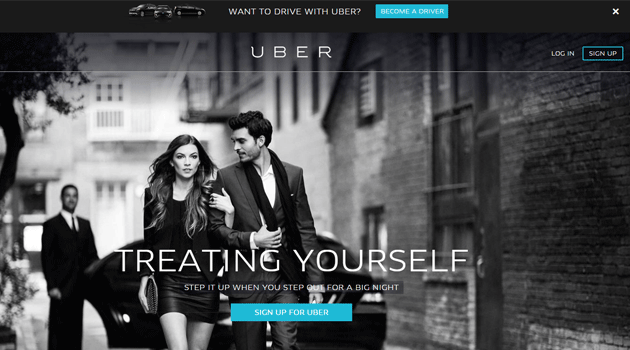
Uber readies $1B war chest for India operations, targets 1M daily rides by 2016

Cab hailing startup Uber Technolgies Inc, one of the two most valued startups globally along with Chinese smartphone maker Xiaomi, is leaving no stone unturned to make India its biggest global playground and take on local competitor Ola.
The San Francisco-based company is set to plough $1 billion in India over the next nine months to improve operations, expand into newer cities, develop payment solutions and establish a robust support network, said Amit Jain, president, Uber India.

It hopes the investment would help it reach a milestone of one million daily rides by March 2016, Jain added. Currently, Uber is believed to offer around 200,000 daily rides in the country.
"We are bullish on the Indian market and see tremendous potential here. India is one of Uber's big priorities, along with China and UberPool. All three have the ability to significantly improve people's lives, as well as build a great business. This is why Uber is committing an additional $1 billion to India in the next nine months," he added. UberPool is a ride sharing service started last August in some international markets.
Jain had joined Uber last month as head of India operations after a stint with US-based Rent.com.

In an earlier interaction with Techcircle, Uber said it has been growing at over 40 per cent month-over-month in India.
Uber's funding commitment comes at a time when local rival Ola just raised $400 million early this year to strengthen its dominance and is reportedly in talks to raise another large round. Ola, which counts DST Global, SoftBank and Tiger Global among others as investors, is by far the top player in the mobile cab hailing app business in India. IVFA-controlled legacy cab service provider Meru is another biggie, having pivoted its business model from an asset-heavy play earlier.
Uber's move is similar to e-commerce major Amazon. Having lost the early mover advantage to local rival Flipkart, Amazon has committed big money to expand in India, its fastest growing market globally. Flipkart itself raised around $1.9 billion last year.

Meanwhile, after some difficult months, things are starting to look up for Uber. Recently, the Delhi High Court set aside a Delhi government order that rejected Uber's application to operate in the national capital. While the court said Delhi authorities can impose strict conditions to regulate app-based taxi companies, it did not favour a complete ban.
Uber was under Delhi government's scanner from December last year following rape allegations against one of its drivers. The government went on to ban Uber and Ola from offering service in the state as they do not have licence under Modified Radio Taxi Scheme 2006 of Transport Department of Delhi. However, Uber cabs have been operating in Delhi despite the ban.
Earlier this month, Uber expanded its services to seven more cities, making India the largest geographical market for the cab-hailing app after the US. Uber counts Bangalore and Kolkata as two of its fastest growing cities globally.

To match up to the opportunities in the country, Uber recently said it will invest $50 million in Hyderabad over the next five years to establish a facility that will house hundreds of its employees and would be its biggest international office.
It has also been trying hard to customise its business for India. Uber started offering autorickshaw hailing service after Ola started the service and is experimenting with cash payments as an option. Recently, it resumed accepting credit card payments in India after discontinuing the option following rap from RBI to comply with its two-step payment confirmation process. In the interim, Uber only allowed payment through Paytm mobile wallet.
Indeed it has also roped in some Indian investors in its latest funding round where it raised money from China's Hillhouse Capital Group and others. At least, two Indian family offices have put in money in Uber.

Uber is one the world's heavily funded startups. Marque names such as Fidelity Investments, Wellington Management, BlackRock Inc, Summit Partners, Kleiner Perkins, Google Ventures, Menlo Ventures, New Enterprise Associates (NEA) and Qatar Investment Authority among others have put money in the company. Uber was valued at $40 billion during its last round in December 2014.

